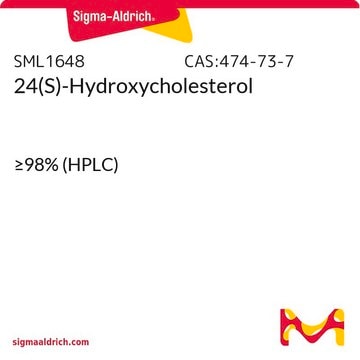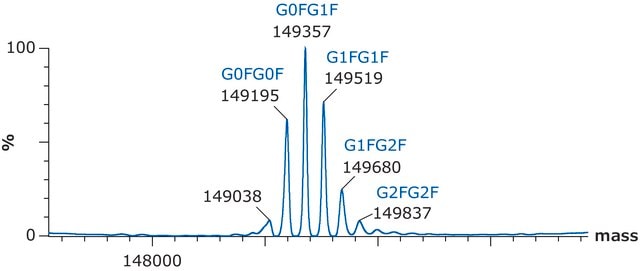PZ0190
Avasimibe
≥98% (HPLC)
Synonym(e):
CI-1011; PD 148515; [[2,4,6-tris(1-methylethyl)phenyl]acetyl]-, 2,6-bis(1-methylethyl)phenyl ester] sulfamic acid
About This Item
Empfohlene Produkte
Assay
≥98% (HPLC)
Form
powder
Farbe
white to tan
Löslichkeit
DMSO: ≥40 mg/mL
Relevante Krankheit(en)
Alzheimer′s disease; cardiovascular diseases
Lagertemp.
room temp
SMILES String
CC(C)c1cc(C(C)C)c(CC(=O)NS(=O)(=O)Oc2c(cccc2C(C)C)C(C)C)c(c1)C(C)C
InChI
1S/C29H43NO4S/c1-17(2)22-14-25(20(7)8)27(26(15-22)21(9)10)16-28(31)30-35(32,33)34-29-23(18(3)4)12-11-13-24(29)19(5)6/h11-15,17-21H,16H2,1-10H3,(H,30,31)
InChIKey
PTQXTEKSNBVPQJ-UHFFFAOYSA-N
Anwendung
Biochem./physiol. Wirkung
Rechtliche Hinweise
Lagerklassenschlüssel
11 - Combustible Solids
WGK
WGK 3
Flammpunkt (°F)
Not applicable
Flammpunkt (°C)
Not applicable
Analysenzertifikate (COA)
Suchen Sie nach Analysenzertifikate (COA), indem Sie die Lot-/Chargennummer des Produkts eingeben. Lot- und Chargennummern sind auf dem Produktetikett hinter den Wörtern ‘Lot’ oder ‘Batch’ (Lot oder Charge) zu finden.
Besitzen Sie dieses Produkt bereits?
In der Dokumentenbibliothek finden Sie die Dokumentation zu den Produkten, die Sie kürzlich erworben haben.
Artikel
Discover Bioactive Small Molecules for Lipid Signaling Research
Unser Team von Wissenschaftlern verfügt über Erfahrung in allen Forschungsbereichen einschließlich Life Science, Materialwissenschaften, chemischer Synthese, Chromatographie, Analytik und vielen mehr..
Setzen Sie sich mit dem technischen Dienst in Verbindung.








